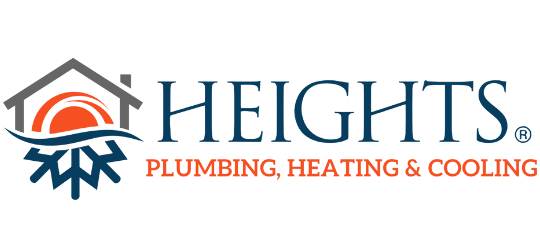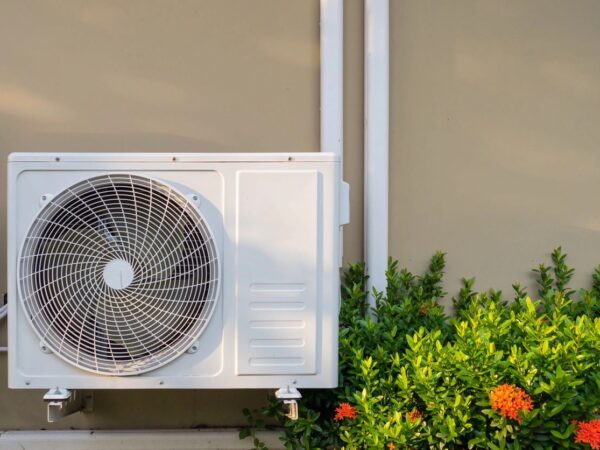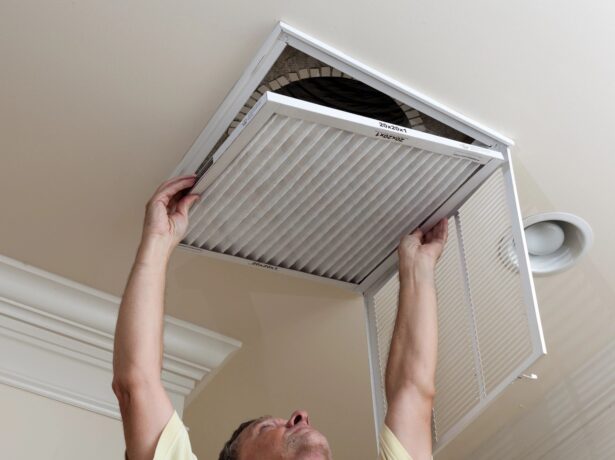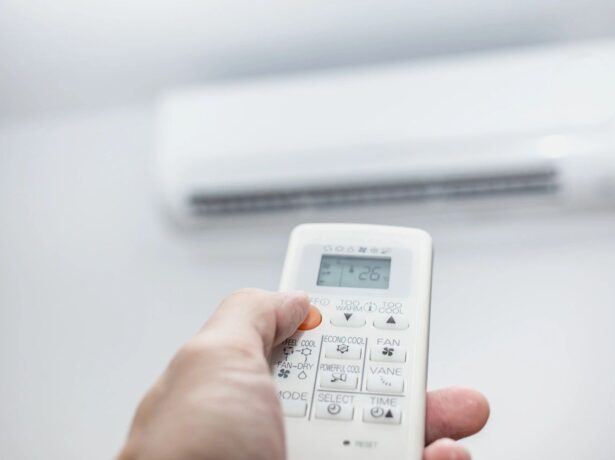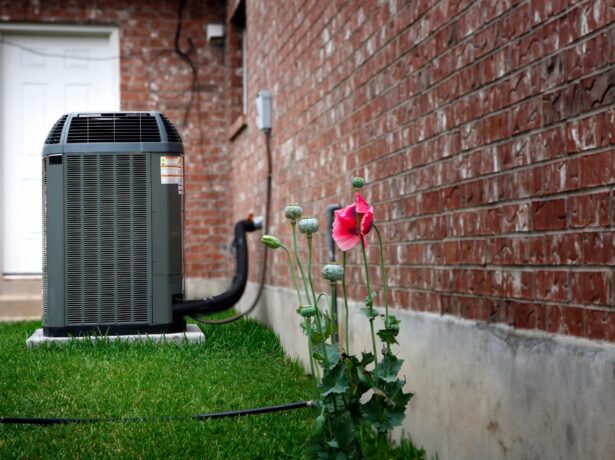Mastering Comfort: The Ultimate Guide to Efficient HVAC Systems for Your Home
Welcome to the ultimate guide on efficient HVAC systems for your home. Having a comfortable living environment is essential, and choosing the right HVAC system is crucial in achieving optimal comfort while ensuring energy efficiency.
The Importance of Efficient HVAC Systems
An HVAC (Heating, Ventilation, and Air Conditioning) system is responsible for regulating the temperature, humidity, and air quality in your home. It plays a significant role in creating a comfortable living space by providing warmth during the cold months and cooling during the hot summer days. However, not all HVAC systems are created equal when it comes to efficiency.
Efficient HVAC systems offer numerous benefits, starting with energy savings. Traditional systems can be energy hogs, leading to higher utility bills. On the other hand, energy-efficient systems are designed to minimize energy consumption while still delivering optimal comfort. By upgrading to an efficient HVAC system, you can significantly reduce your energy costs and save money in the long run.
Another advantage of efficient HVAC systems is their positive impact on the environment. Traditional systems tend to emit more greenhouse gases, contributing to climate change. Energy-efficient systems, on the other hand, consume less energy and produce fewer emissions, helping to reduce your carbon footprint.
How HVAC Systems Work
To understand the importance of efficiency in HVAC systems, it’s essential to grasp how they work. HVAC systems consist of three main components: the heating unit, the cooling unit, and the ventilation system.
The heating unit, typically a furnace or a heat pump, warms the air during colder months. It draws in cold air, heats it, and then distributes it throughout your home via ductwork or other means. The cooling unit, usually an air conditioner, removes heat from the air, making it cooler and more comfortable. The ventilation system ensures proper air circulation and filters out impurities, improving indoor air quality.
Efficiency in HVAC systems is measured by two key factors: the Seasonal Energy Efficiency Ratio (SEER) for cooling and the Annual Fuel Utilization Efficiency (AFUE) for heating. Higher SEER and AFUE ratings indicate better energy efficiency, meaning the system can provide the same level of comfort while consuming less energy.
Common Problems with HVAC Systems
Even the most efficient HVAC systems can experience issues over time. Understanding common problems can help you troubleshoot and address them promptly, ensuring your system operates at optimal efficiency.
One common issue is poor airflow, which can result from clogged filters, blocked vents, or a malfunctioning fan. Restricted airflow puts additional strain on the system, reducing its efficiency and potentially leading to higher energy consumption.
Another problem is refrigerant leaks. Low refrigerant levels can cause your HVAC system to work harder to achieve the desired temperature, increasing energy usage and potentially damaging the compressor.
Thermostat issues can also affect the efficiency of your HVAC system. A faulty thermostat can lead to inaccurate temperature readings, causing the system to run longer than necessary and wasting energy.
Benefits of Upgrading to an Efficient HVAC System
Upgrading to an efficient HVAC system comes with a host of benefits beyond energy savings and environmental impact. Here are some additional advantages to consider:
Enhanced Comfort
Efficient HVAC systems are designed to provide consistent and precise temperature control, ensuring optimal comfort throughout your home. By maintaining a more even temperature, these systems eliminate hot or cold spots, creating a more enjoyable living environment.
Improved Indoor Air Quality
Energy-efficient HVAC systems often incorporate advanced filtration technologies that can help remove contaminants such as dust, pollen, and allergens from the air. This is particularly beneficial for individuals with allergies or respiratory conditions, as it can help reduce symptoms and improve overall air quality.
Quieter Operation
Efficient HVAC systems are engineered to operate with minimal noise. Upgrading to a modern, energy-efficient system can significantly reduce the noise level compared to older models, providing a quieter and more peaceful living space.
Increased Home Value
Investing in an efficient HVAC system can boost the value of your home. Prospective buyers are increasingly prioritizing energy efficiency, and having an updated system in place can make your property more attractive and marketable.
Factors to Consider When Choosing an HVAC System
Selecting the right HVAC system for your home requires careful consideration of various factors. Here are some key points to keep in mind during the decision-making process:
Climate
The climate in which you live plays a crucial role in determining the type of HVAC system that will best suit your needs. For example, if you reside in a region with hot summers and mild winters, a central air conditioning system may be the most efficient option. On the other hand, if you experience extreme temperatures year-round, a heat pump or dual-fuel system might be more suitable.
Size and Layout of Your Home
The size and layout of your home directly impact the sizing requirements of your HVAC system. A system that is too small will struggle to adequately heat or cool your home, while an oversized system will cycle on and off frequently, wasting energy. Consulting with a qualified HVAC professional can help ensure you choose the right size system for optimal efficiency.
Energy Efficiency Ratings
When comparing HVAC systems, pay close attention to their SEER and AFUE ratings. Higher ratings indicate better energy efficiency. Additionally, look for systems with the ENERGY STAR label, as these have been independently certified to meet strict energy efficiency guidelines.
Cost and Budget
Consider your budget and the long-term cost savings when selecting an HVAC system. While more efficient systems may have a higher upfront cost, they can provide significant savings on energy bills over time. It’s important to strike a balance between upfront expenses and long-term benefits.
Maintenance Requirements
All HVAC systems require regular maintenance to ensure optimal performance and longevity. Some systems may have more complex maintenance requirements than others. Consider your willingness and ability to perform regular maintenance tasks or hire professionals to do so.
Tips for Maintaining and Optimizing Your HVAC System
Proper maintenance is essential to keep your HVAC system operating at peak efficiency. Here are some tips to help you maintain and optimize your system:
Regular Filter Changes
Regularly changing your HVAC system’s air filters is one of the simplest yet most effective ways to improve its efficiency. Clogged filters restrict airflow, making the system work harder and consume more energy. Aim to replace filters every three months or as recommended by the manufacturer.
Cleaning and Clearing Vents
Ensure that all vents and registers are clean and unobstructed. Dust and debris can accumulate over time, hindering airflow and reducing efficiency. Regularly vacuum and wipe down vents to keep them free from obstructions.
Scheduled Professional Maintenance
Consider scheduling annual maintenance inspections with a qualified HVAC technician. Professional maintenance can help identify and address potential issues before they escalate, improving system efficiency and preventing costly breakdowns.
Optimizing Programmable Thermostats
If you have a programmable thermostat, take advantage of its features to optimize energy usage. Set the thermostat to adjust temperatures based on your daily schedule, reducing energy consumption during periods when no one is at home.
Seal and Insulate Your Home
Proper insulation and sealing can significantly reduce energy waste. Insulate your home’s walls, attic, and crawl spaces, and seal any gaps or cracks around doors, windows, and ductwork to prevent air leakage.
Energy-Saving Strategies for HVAC Systems
In addition to regular maintenance, there are several energy-saving strategies you can implement to optimize your HVAC system’s efficiency:
Utilize Natural Ventilation
Take advantage of natural ventilation when weather permits. Opening windows and using ceiling fans can help circulate fresh air and reduce reliance on your HVAC system.
Set Optimal Temperature
Setting your thermostat to the optimal temperature can minimize energy usage. In the summer, aim for a temperature around 78°F (25°C), and in the winter, aim for around 68°F (20°C). Small adjustments can make a significant difference in energy consumption.
Utilize Zoning Systems
If your home has multiple floors or rooms with different temperature needs, consider installing a zoning system. Zoning systems allow you to control the temperature independently in different areas, optimizing comfort and energy usage.
Consider Smart Thermostats
Smart thermostats offer advanced features, such as learning your schedule and adjusting temperatures accordingly. They can also be controlled remotely via smartphone apps, allowing you to optimize energy usage even when you’re away from home.
The Latest Advancements in HVAC Technology
The HVAC industry is continuously evolving, with new technologies emerging to further enhance energy efficiency and comfort. Here are some of the latest advancements in HVAC technology:
Variable-Speed Compressors
Variable-speed compressors adjust their speed based on the heating or cooling demand, providing more precise temperature control and improved energy efficiency. These compressors can operate at lower speeds for extended periods, consuming less energy than traditional compressors.
Geothermal Heating and Cooling
Geothermal systems utilize the earth’s natural heat to provide heating and cooling. These systems are highly efficient and environmentally friendly, as they transfer heat between the earth and your home using underground pipes.
Air Purification Systems
Advanced air purification systems, such as ultraviolet (UV) lights and electrostatic filters, can further improve indoor air quality by eliminating harmful bacteria, viruses, and allergens. These systems work in conjunction with your HVAC system to provide cleaner and healthier air.
Hiring a Professional HVAC Contractor
When it comes to HVAC system installation, repair, or maintenance, hiring a professional HVAC contractor is essential. Here are some tips for finding a reputable contractor:
Research and References
Do thorough research and seek recommendations from friends, family, or neighbors who have recently had HVAC work done. Look for contractors with positive reviews and a strong track record in the industry.
Licensing and Certifications
Ensure that the contractor is licensed and certified to perform HVAC work in your area. Proper licensing and certifications ensure that the contractor has met the necessary requirements and possesses the expertise to handle your HVAC system.
Written Estimates and Contracts
Obtain written estimates from multiple contractors and compare the scope of work, cost, and timeline. Once you’ve chosen a contractor, ensure that all details are documented in a written contract, including warranties and guarantees.
Maintenance Plans
Inquire about maintenance plans or service agreements offered by the contractor. Regular maintenance can help prolong the lifespan of your HVAC system and ensure optimal efficiency.
Conclusion
Choosing an efficient HVAC system is vital for achieving comfort in your home while minimizing energy consumption. By understanding the different types of systems available, evaluating efficiency ratings, and considering factors such as climate and home size, you can make informed decisions that will benefit both your comfort and your wallet.
Regular maintenance and optimization, along with energy-saving strategies, can help maximize the efficiency of your HVAC system. Embracing the latest advancements in HVAC technology and hiring a professional contractor for installation and maintenance will ensure that your system operates at its best.
Mastering comfort in your home starts with an efficient HVAC system. By following the advice and guidelines outlined in this ultimate guide, you can create the perfect environment for you and your loved ones while reducing your carbon footprint and enjoying energy savings for years to come.
